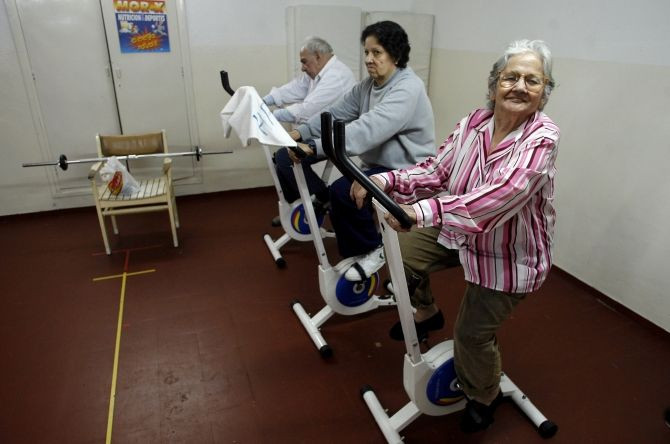New Exercise Routine 'LiFE' Makes Elderly Active, Helps Prevent Falls

Falls are common and a major cause for fractures among adults over 65 years of age. Exercise helps in reducing falls but very few people actually stick to a regular exercise routine. Now, researchers from University of Sydney have designed a new exercise program that strengthens limbs and prevents falls among the elderly.
The new exercise program employs basic limb strengthening exercises with daily activities like walking and stepping over objects.
Researchers call this exercise program Lifestyle integrated Functional Exercise (LiFE). The idea behind integrating exercise with daily activities is that it helps people stick to an exercise routine.
For the study, researchers recruited more than 300 frail men and women above 70 years of age. These participants were split into three groups; the first group participants was asked to follow the LiFE program, the second group was asked to follow a standard exercise program and third group did "fake" gentle exercises and was a control group.
Researchers found that the risk of fall in the LiFE group was 31 percent lower than the control group.
Also, people were more likely to stick to LiFE program than the standard exercise routine.
The LiFE program "provides an alternative to traditional exercise for older people to reduce falls, to improve function in doing activities and to enhance participation in daily life," the authors concluded.
According to Centers for Disease Control and Prevention (CDC), one out of every three adults aged 65 or older falls each year. Falls can result in serious injuries or even early death. The agency recommends old people to get regular exercise and vision correction to prevent falls.
"The belief that falls should be accepted and tolerated as part of the ageing process is a myth that needs dispelling. Many falls can and should be prevented," Professor Meg Morris from the University of Melbourne writes in an accompanying editorial.
Morris says that for fall prevention programs to be successful,"therapeutic exercises, education, and physical activities need to be sustainable, enjoyable, and effective over the long term."
The study was published in BMJ.
Published by Medicaldaily.com



























